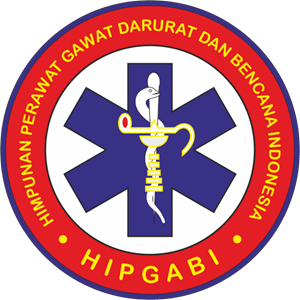Summary of Self-Management Program for Patients with CKD: A Systematic Review
Downloads
Background: Self-management is an important step in preventing and impeding the progression of chronic kidney disease. The effective support and encouragement of self-management in patients with chronic kidney disease is therefore required. The aim of this study was to examine the effectiveness of a self-management program improving the quality of life on patients with CKD.
Method: The literature review used the keywords ‘chronic kidney disease', ‘self-management program' and ‘quality of life'. From the article search using "AND” as well, only 8 studies met the inclusion criteria. Across the 8 studies, 592 participants and a mean 147 per trial were included within the middle age group.
Discussion: The types intervention were a heterogenous. CKD self-management program, renal education and exercise intervention, the EASE program, the KDE program, and a CKD Educational Program recommended to improve quality of life.
Consclusion: The education and exercise intervention had a positive effect on the physical and mental health and well-being of the patients with CKD. Therefore early education about renal disease improves quality of life and treatment outcomes in patients with CKD who are on dialysis.
Barlow, J., Wright, C., Sheasby, J., Turner, A., & Hainsworth, J. (2002). Self-management approaches for people with chronic conditions : a review. 48.
Clearinghouse, N. K. and U. D. I. (2012). Kidney Disease Statistics for the United States.
Curtin, R. B., & Mapes, D. L. (2001). Health care management strategies of long-term dialysis survivors. Nephrology Nursing Journal : Journal of the American Nephrology Nurses' Association, 28(4), 385–392; discussion 393-4.
Enworom, C. D., & Tabi, M. (2015). Evaluation of Kidney Disease Education on Clinical Outcomes and Knowledge of Self-Management Behaviors of Patients with Chronic Kidney Disease. Nephrology Nursing Journal : Journal of the American Nephrology Nurses' Association, 42(4), 363–372; quiz 373.
Havas, K., Bonner, A., & Douglas, C. (2016). SELF-MANAGEMENT SUPPORT FOR PEOPLE WITH CHRONIC KIDNEY DISEASE: PATIENT PERSPECTIVES. 7–14.
Joboshi, H., & Oka, M. (2017). Effectiveness of an educational intervention (the Encourage Autonomous Self-Enrichment Program) in patients with chronic kidney disease: A randomized controlled trial. International Journal of Nursing Studies, 67, 51–58. https://doi.org/10.1016/j.ijnurstu.2016.11.008
Kasiske, B. L., Levey, A. S., Nahas, M. E. l., Coresh, J., Matsushita,
K., de Jong, P. E., ... Gansevoort, R. T. (2010). The definition, classification, and prognosis of chronic kidney disease: a KDIGO Controversies Conference report. Kidney International, 80(1), 17–28. https://doi.org/10.1038/ki.2010.483
Lazarus, E. R. (2018). Effectiveness of education and exercise on quality of life among patients undergoing hemodialysis. Clinical Epidemiology and Global Health, (July), 0–1. https://doi.org/10.1016/j.cegh.2018.07.003
Lin, C. C., Tsai, F. M., Lin, H. S., Hwang, S. J., & Chen, H. C. (2013). Effects of a self-management program on patients with early-stage chronic kidney disease: A pilot study. Applied Nursing Research, 26(3), 151–156. https://doi.org/10.1016/j.apnr.2013.01.002
Novak, M., Costantini, L., Schneider, S., & Beanlands, H. (2013). Approaches to Self-Management in Chronic Illness. Seminars in Dialysis, 26(2), 188–194. https://doi.org/10.1111/sdi.12080
Richard, C. J. (2006). Self-care management in adults undergoing hemodialysis. 33(4), 387–395.
Riskesdas. (2013). UPAYA PENINGKATAN PROMOTIF PREVENTIF BAGI KESEHATAN GINJAL DI INDONESIA. Hasil Riset Kesehatan Dasar Kementrian Kesehatan RI.
Smeltzer, S. C., Bare, B. G., Hinkle, J. L., & Cherver, K. H. (2010). Bruner and suddarths Text Book Of Medical Surgical Nursing (11th ed.)
Copyright (c) 2019 Critical, Medical and Surgical Nursing Journal

This work is licensed under a Creative Commons Attribution 4.0 International License.
1. The journal allows the author to hold the copyright of the article without restrictions.
2. The journal allows the author(s) to retain publishing rights without restrictions.
3. The legal formal aspect of journal publication accessibility refers to Creative Commons Attribution (CC BY).

















